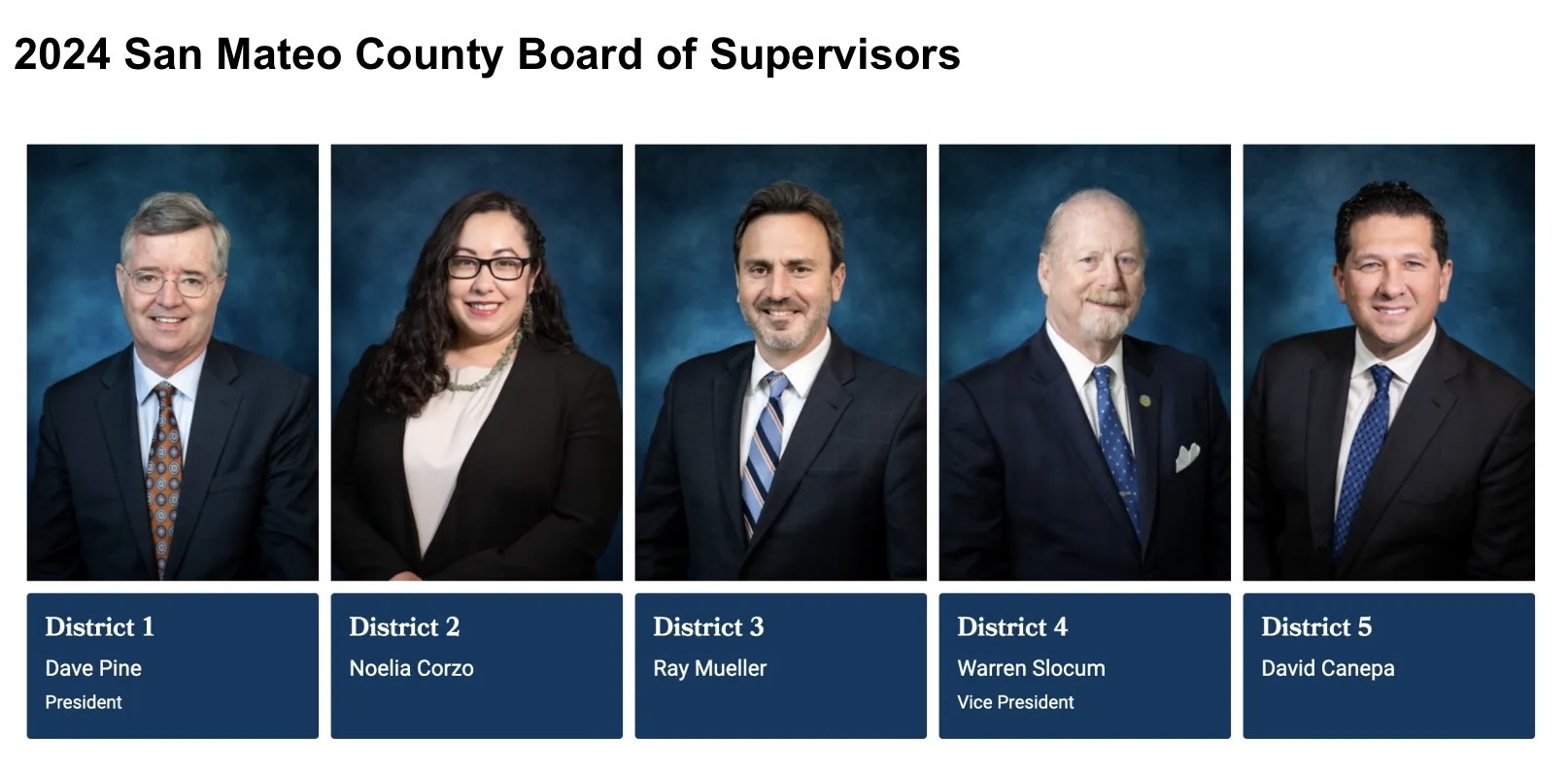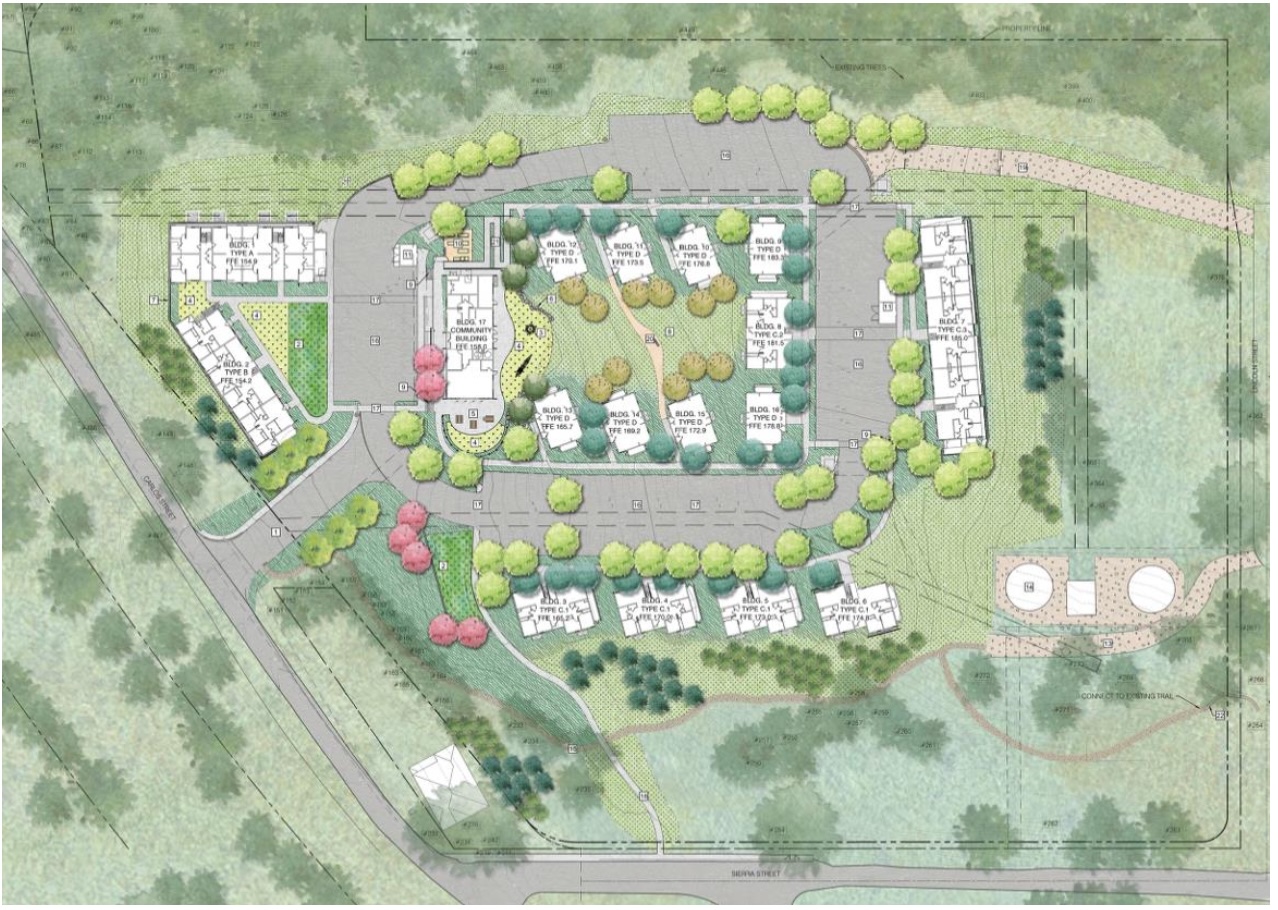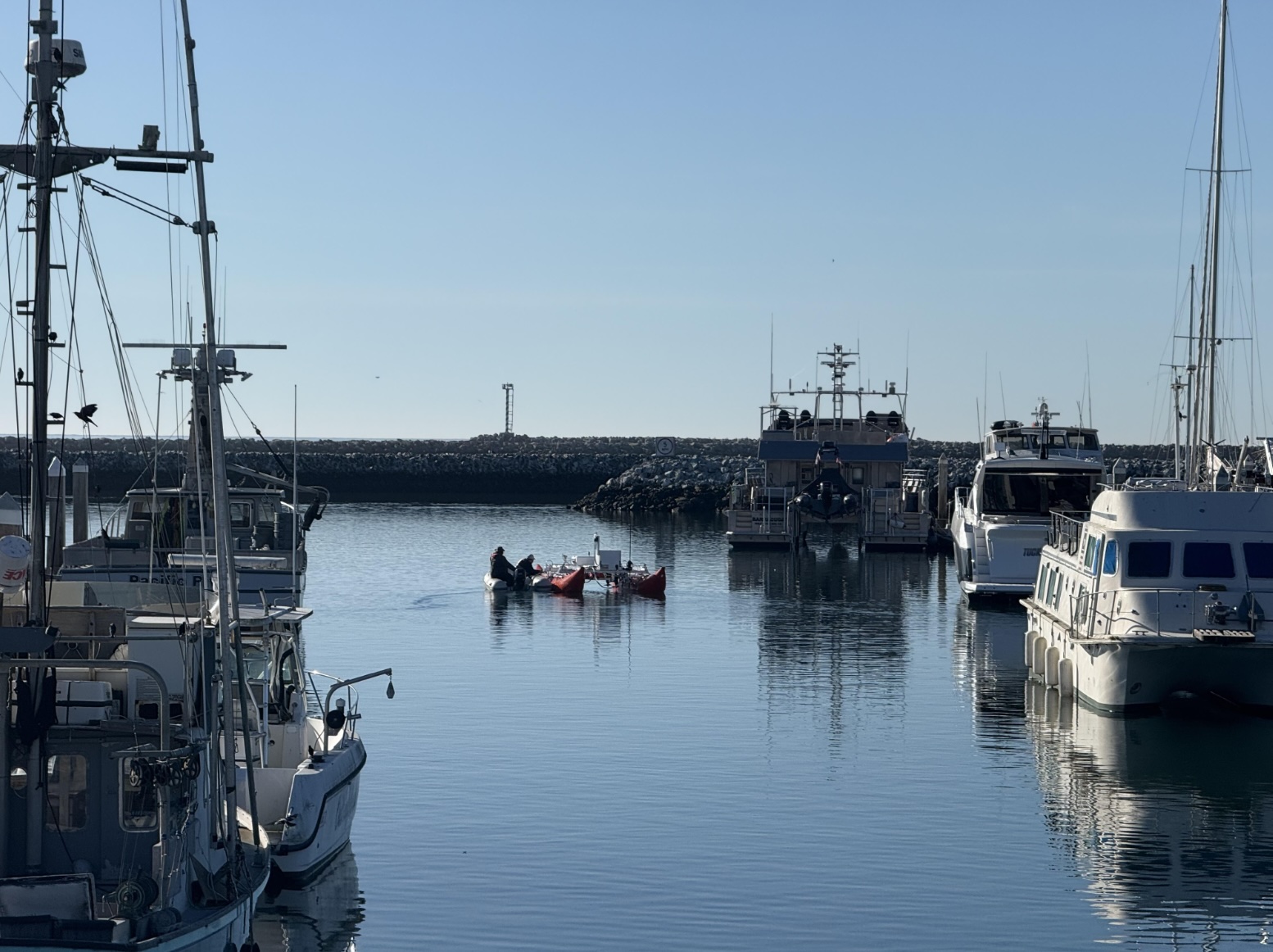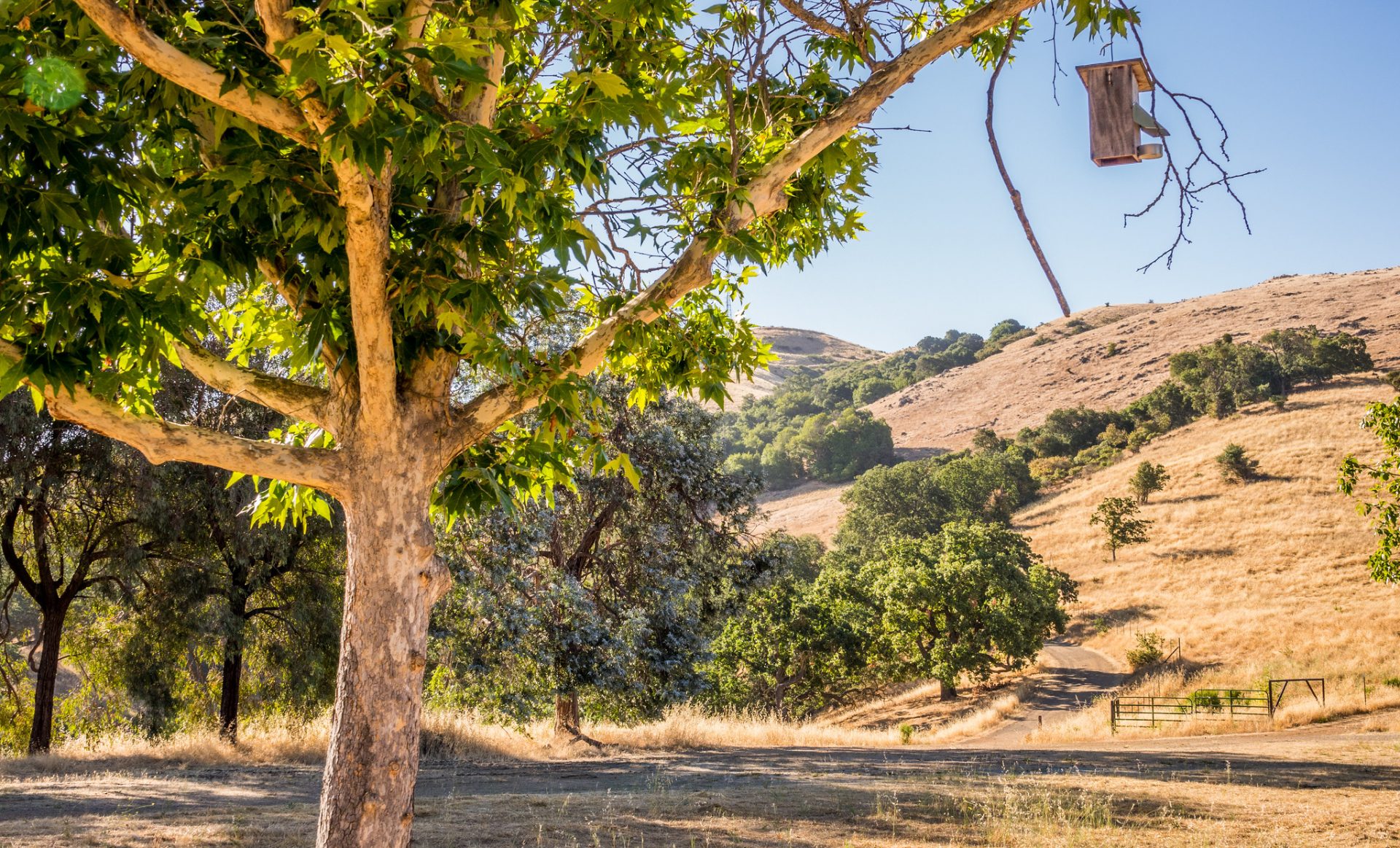|
Getting your Trinity Audio player ready...
|
VIDEO and COURT OPINION. From the San Mateo County Planning Commission meeting on Wednesday, September 11th, 2024 at 9:00am, as an in-person and remote meeting. And from the San Francisco Superior Court on September 4th, 2024 (and CaseText)
Report by San Mateo County Attorney, Tim Fox.
“The Cypress Point Affordable Housing Project was presented to the County in two separate items. One, was a Local Coastal Program amendment, some zoning amendments occurring the required California Coastal Commission certification. And subsequently there was a Coastal Development Permit to follow.
The first action, the one that went before the Coastal Commission was challenged in a lawsuit in San Francisco Superior Court by Midcoast Eco. Trial court ruled in the Coastal Commission’s favor. The County was involved in the lawsuit in a capacity called “A Real Party in Interest” where we litigating along with the Coastal Commission. The trial court entered a judgement in favor of the Coastal Commission two years ago and that was appealed to the Court of Appeal. On September 4th, 2024 the Court of Appeal issued a written ruling last week saying that the Coastal Commission’s environmental review of the LCP’s amendment was adequate and therefore the decision would stand.
In the mean time the County had already taken action on the Coastal Development Permits in March 2024 and had relied upon a new exemption from CEQA (AB 1449) that had been implemented in the meantime.
It is possible that Midcoast Eco may seek further appeal before the California Supreme Court. It is actually more likely that the project will proceed to its next phase. The California Supreme Court takes very few civil cases because as a court their plate is full of Criminal Appeals that they are required to rule upon. So, they really only take like five civil cases per year so it is highly unlikely this case will be taken up by the California Supreme Court.”

Opinion from the San Francisco Court via CaseText (part of Thompson Reuters)
Case: A168036; 09-04-2024
MIDCOAST ECO, Plaintiff and Appellant, v. CALIFORNIA COASTAL COMMISSION, Defendant and Respondent; COUNTY OF SAN MATEO et al., Real Parties in Interest and Respondents.
The following is an abstract of the full opinion.
The LCP of San Mateo County (the County) previously zoned an 11-acre parcel located in an unincorporated coastal area for the development of 148 homes, with a mix of market rate housing and affordable housing. Later, the County proposed amending its program by rezoning the parcel for only 71 homes, all affordable housing.
Midcoast ECO (Midcoast) – a nonprofit environmental group – petitioned for a writ of mandate, alleging the Commission violated the Coastal Act by certifying the amendment. It argued the amendment did not conform to the County’s LCP or Coastal Act policies of, among other things, protecting, maintaining, and enhancing the quality of the coastal zone environment. Midcoast also alleged the Commission certified the amendment without complying with CEQA’s procedural and substantive requirements, such as failing to evaluate reasonably foreseeable environmental effects of the amendment, deferring its environmental review of the specific housing development to a subsequent coastal development permit process, and failing to respond to public comments regarding the amendment. The trial court denied the petition, and Midcoast now appeals. We affirm.
In 2018, MidPen Housing Corporation (MidPen) proposed building an affordable housing development, the Cypress Point Family Community (Cypress Point), on the parcel.
In November 2020, the County sought to amend its LCP to alter the parcel’s land use designation from medium-high density to medium density residential.
The Commission subsequently approved the amendment after a March 2021 hearing.
Midcoast filed a combined petition for writ of mandate and a complaint for injunctive relief, alleging the Commission approved the LCP amendment without engaging in the proper level of environmental review under CEQA. Midcoast also alleged the amendment failed to conform to Coastal Act policies protecting coastal resources.
On March 26, 2024, the County Board of Supervisors passed a resolution approving, among other things, a general plan land use map amendment regarding the Moss Beach parcel changing the land use designation from medium-high density residential to medium density residential.
A. Midcoast Eco repeatedly argues the Commission impermissibly deferred a site-specific environmental impact analysis of the LCP amendment to the coastal development permit process. We disagree. Although Midcoast makes this argument as part of its CEQA challenges, it is helpful to first address the issue in a Coastal Act context. That is because the argument improperly conflates the Commission’s state-level review of the County’s LCP amendment with the County’s authority to issue a coastal development permit after its project-level review of the development project – a power the Coastal Act expressly delegates to local governments.
In doing so, the amendment primarily precludes the development of a denser project and mandates development of only affordable housing. But the Commission’s certification allows the County to approve any potential future project – not simply Cypress Point – that satisfies these standards and conforms to all other applicable LCP policies.
Any future development depends on a variety of other factors that, after an LCP is certified, are generally beyond the Commission’s control.
In sum, the Commission did not impermissibly defer its requisite analysis to a subsequent process.
B. Midcoast Eco contends the Commission failed to consider whether the land use plan portion of the LCP amendment conformed to the Coastal Act’s requirement for new developments to minimize vehicle miles traveled.
In assessing traffic impacts including vehicle miles traveled, the Commission report noted the County plans for specific transit and roadway improvements – such as improving pedestrian and bicycle routes between the parcel and downtown Moss Beach, and improving existing bus stops – to help provide enhanced traffic flow for both existing and potential development in the area.
C. Midcoast Eco contends the Commission failed to determine whether the LCP amendment meets the requirements of, or is in conformity with, Coastal Act policies protecting environmentally sensitive habitat areas.
The Commission noted the County’s existing LCP includes a series of policies to protect coastal resources, as indicated above. Any future development on the parcel would be required to adhere to those policies.
We are not persuaded. First, to the extent the Commission did not expressly recite sections 30230 and 30231 when making its consistency determinations, it nonetheless addressed the relevant resource protection issues, and its findings are supported by substantial evidence.
Second, the Commission explained water and sewer service providers for the parcel – the Montara Water and Sanitary District and Sewer Authority MidCoastside – indicated there was enough capacity to serve an affordable housing project at the proposed, reduced density. Indeed, water and sewer capacity had already been reserved to serve the parcel under the County’s existing LCP. A reduction in density thus potentially frees up more water already reserved for other Coastal Act or LCP priority uses.
Finally, for protection against erosion of lead-contaminated soil during construction, the Commission explained the County’s existing LCP requires all new developments to comply with certain minimum requirements, including cleaning up leaks and spills to prevent groundwater contamination and discharge into the storm drain system, as well as employing site planning and construction methods to reduce the need for pesticides and contaminants, and prevent contact with stormwater.
D. We also reject Midcoast Eco’s argument that the Commission did not consider the LCP amendment’s conformance with Coastal Act policies regarding hazard containment and cleanup with marine resources.
Again, nothing in the amendment allows for future development that avoids or fails to mitigate potential impacts from the presence of hazardous soils, nor does Midcoast identify any. There was no procedural error, and none of Midcoast’s assertions persuade us otherwise.
In sum, the record demonstrates the Commission did not abuse its discretion under the Coastal Act in concluding the LCP amendment is consistent with Coastal Act policies – it proceeded in the manner required by law and its decision is supported by the evidence. (Ross, supra, 199 Cal.App.4th at p. 921.)
Midcoast’s reliance on an August 2020 biological resource assessment, finding a significant impact to the California red-legged frog from the Cypress Point development similarly fails to satisfy its burden. That biological assessment explained the Moss Beach parcel does not provide the appropriate aquatic habitat necessary for the species, it has not been observed on the parcel, and there are no documented occurrences of the species on the parcel A dense cypress tree habitat along the northern border of the parcel in fact separates the parcel from any appropriate aquatic drainage habitat. According to the assessment, the likelihood of the redlegged frog’s presence on the parcel where construction could take place is low given the lack of an aquatic habitat and lack of shaded moist areas – all statements Midcoast ignores.
In our view, the Commission disclosed and carefully considered the environmental consequences of the proposed LCP amendment, explained the reasons for its approval, and afforded the public “an opportunity to participate meaningfully in the environmental review process.”
DISPOSITION
The judgment is affirmed. The Commission is entitled to costs on appeal. (Cal. Rules of Court, rule 8.278 (a).)
NOTE. This an abstract of a much longer document. If you got this far, read the whole opinion to understand the nuances of the decision.
More on Cypress Point on Coastside Buzz
San Mateo County Plannning Commission
- Frederick Hansson2nd Term
Jan 01, 2019 to Jan 06, 2023Title
MemberRepresenting
Second District - Carlos Serrano-QuanPartial Term
Jun 28, 2022 to Dec 31, 2024Title
MemberRepresenting
Fifth District - Manuel Ramirez Jr.2nd Term
Jan 01, 2021 to Dec 31, 2024Title
MemberRepresenting
Fourth District - Kumkum Gupta1st Term
Jan 01, 2021 to Dec 31, 2024Title
MemberRepresenting
First District - Lisa Ketcham2nd Term
Jan 01, 2023 to Dec 31, 2026Title
MemberRepresenting
Third District - Steven MonowitzNo Term
N/A N/ATitle
StaffRepresenting
Community Development Director - Diana ShuNo Term
N/A N/ATitle
StaffRepresenting
Department of Public Works

2024 Election


The 2024 Board of Supervisors, from left: Ray Mueller (D3), Noelia Corzo (D2) Warren Slocum (D4, BOS President), David J. Canepa (D5, BOS Vice President) and Dave Pine (D1, outgoing BOS President).






Many thanks to the MidCoast ECO people for valiantly pursuing a better future than this misplaced project promises for our neighborhood in Moss Beach. When the fix is in at San Mateo County government, it is almost impossible to change anything with even the most righteous arguments. The county slimed this one through, even though site studies were incomplete; access, parking, and traffic problems on surface roads are not realistically addressed, let alone corrected; and the project clearly does not meet multiple parts of AB 1449 criteria. Even the ignorant name Cypress Point screams incompetence, as there are no native cypresses in Moss Beach (or anywhere else on the Midcoast). I’m long past getting angry over the county’s poor, bullying government on the Midcoast, yet I still can’t suppress my disgust.
Affordable housing–and all the reality-defying urban-think now being used to boost it at local, county, and state levels–is current government’s replacement for the blessedly departed, corrupt, community-destroying urban redevelopment projects of the past. Everyone except those benefiting from the money game loses, including the residents of the inappropriate housing created.